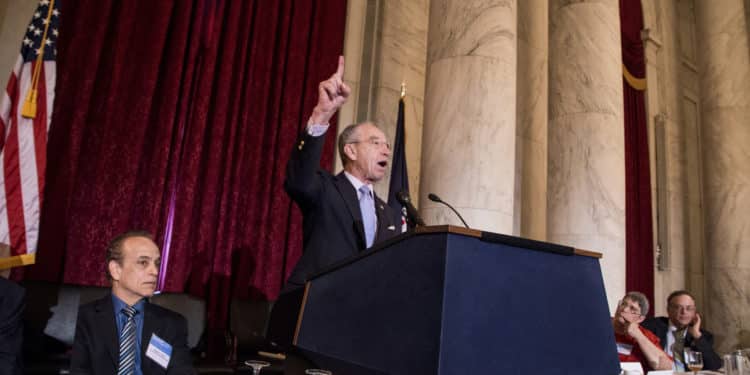In a letter sent to U.S. Attorney General William Barr earlier this month, Senator Charles Grassley wrote that he “vehemently disagreed” with a Department of Justice (DOJ) brief filed with the U.S. Supreme Court.
Sen. Grassley, a longtime advocate for whistleblowers, is the original author of the 1986 False Claims Act amendments. His letter refers to a brief filed with the Supreme Court in a qui tam False Claims Act case. The DOJ argues in the case that its dismissal authority is an unreviewable exercise of prosecutorial authority.
The qui tam provisions of the False Claims Act allows for private citizens with evidence of fraud against federal programs or contracts to sue the wrongdoer on behalf of the United States. In qui tam actions, the government has a right to intervene in the case. If they decline, the plaintiff, known as the relator, can continue with the legal proceedings on their own.
In September 2019, Grassley also voiced his concerns over a controversial 2018 DOJ memo, known as the “Granston memo.” The Granston memo guides government attorneys to seek dismissals of False Claims Act cases “for reasons that appear primarily unrelated to the merits of individual cases.”
In his 2019 letter, Grassley cited cases brought under the False Claims Act, where the DOJ has moved for dismissal based on the guidance of the Granston Memo. In one case ,he wrote, the “DOJ admitted that it did not thoroughly investigate the specific claims made by the relators,” to determine if “the costs it would likely incur versus the potential recovery that would flow to the Government if this case were to proceed.”
“In order for the law to continue working, DOJ must let the qui tam provision work the way it was intended and allow relators to proceed with litigation on their own,” Grassley said in the letter.
Eight months later, Grassley is doubling down on his warnings and urging the DOJ to reconsider their stance on dismissal authority.
“The False Claims Act is the government’s most powerful tool in deterring fraud and recovering federal funds lost to fraud,” the letter stated. “To date it has helped the federal government reclaim more than $60 billion. What makes this law work is, and always has been, the support from whistleblowers who come forward with these claims.”
“Having unfettered dismissal authority will create a chilling effect on future whistleblowers that will ultimately end up costing the taxpayers a lot more,” Grassley wrote.
The qui tam provisions of the FCA incentivize whistleblowers to step forward to report fraud. If a qui tam whistleblower’s disclosure results in a successful enforcement action, the relator can receive between 15 and 30 percent of the monies recovered from the defendant.
The False Claims Act has been historically successful in rooting out fraud and corruption in the government. The Department of Justice announced over $3 billion in recoveries from False Claims Act cases in 2019. Since 1986, recoveries total more than $62 billion.
Whistleblower advocacy groups have been highly critical of the Granston Memo’s directive. The National Whistleblower Center (NWC), a Washington-based nonprofit, issued an alert today urging the public to Demand that the DOJ protects the False Claims Act.


